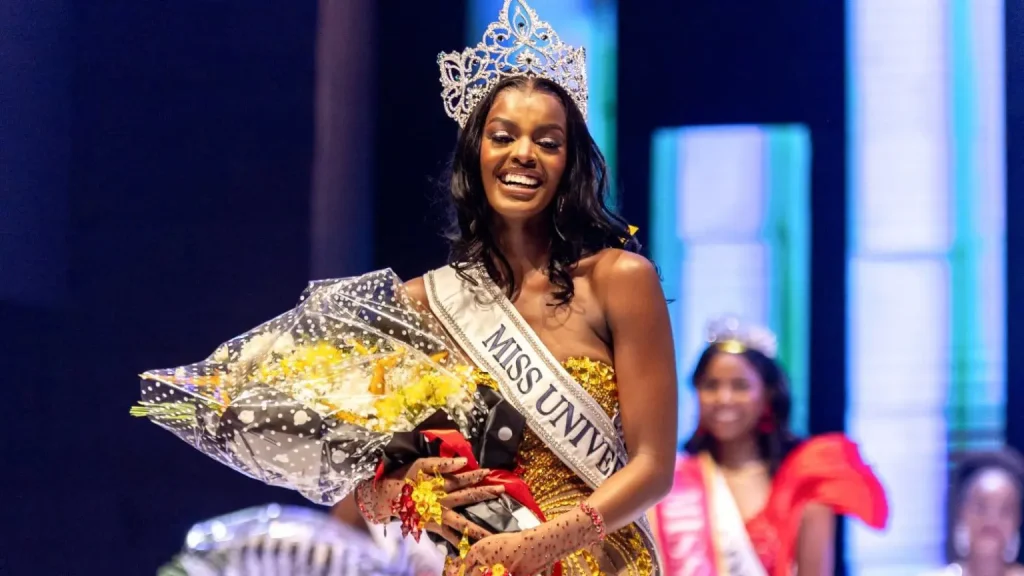Chidimma Adetshina’s recent crowning as Miss Universe Nigeria 2024 has ignited conversations across the country. As a South African beauty pageant titleholder of Nigerian descent, her win comes just weeks after she withdrew from the Miss South Africa competition following a wave of xenophobic attacks questioning her nationality. Now, as she prepares to represent Nigeria at the Miss Universe 2024 competition in Mexico, many are left wondering: Did she earn her crown based on merit, or is it a strategic move by the organizers to leverage her compelling narrative for global appeal?
At just 23 years old, she faced immense hostility, becoming a victim of online xenophobia when her background came under scrutiny in South Africa. Born to a Nigerian father and a South African mother with Mozambican roots, her multicultural identity made her a target for those who believed she wasn’t “South African enough” to compete in their pageant. After stepping down from Miss South Africa, she was invited to compete in the Nigerian competition, where she won.
This victory, however, has raised eyebrows. Some believe that other contestants, who had participated in the screening stages and performed exceptionally well, may have been more deserving of the crown. Was Adetshina’s win based on her ability to outshine her competitors, or was it a form of compensation for what she endured in South Africa?
Adetshina’s unique background and her story of resilience certainly fit the bill of a modern beauty queen. By representing Nigeria on the global stage, she brings a narrative of overcoming adversity, a trait that resonates internationally and could give Nigeria a strong chance at Miss Universe 2024.
However, it is also important to question whether Adetshina’s story, though powerful, overshadowed the performances of other contestants who had been involved in the competition from the beginning. Were the judges swayed more by her global appeal and personal hardships than by her performance during the actual pageant? Did the organizers prioritize a storyline that could draw international attention, rather than the merits of her competition journey?
In an industry where beauty queens are often judged for their ability to influence and impact, having a compelling story can sometimes become a determining factor. This does not necessarily mean that Adetshina was undeserving of her title, but it raises the question of whether her story played a larger role than her actual performance. After all, pageants are platforms for advocacy and storytelling, and Adetshina’s unique position as a victim of xenophobia who is now representing her father’s homeland might have been seen as an asset by the organizers.
Ultimately, it is difficult to say definitively whether Adetshina’s win was purely merit-based or a strategic decision. What is certain, however, is that she carries the hopes of millions of Nigerians as she steps onto the Miss Universe stage. Her journey may have begun in South Africa, but it is her Nigerian identity that will shine in Mexico.
Chidimma Adetshina’s victory is an opportunity to showcase Nigeria’s diversity and strength on the global stage. Whether her win was primarily due to merit or the compelling nature of her story, the focus now should be on her ability to represent Nigeria with grace, intelligence, and purpose at Miss Universe 2024. Let us support her journey while also advocating for transparency and fairness in future competitions.
